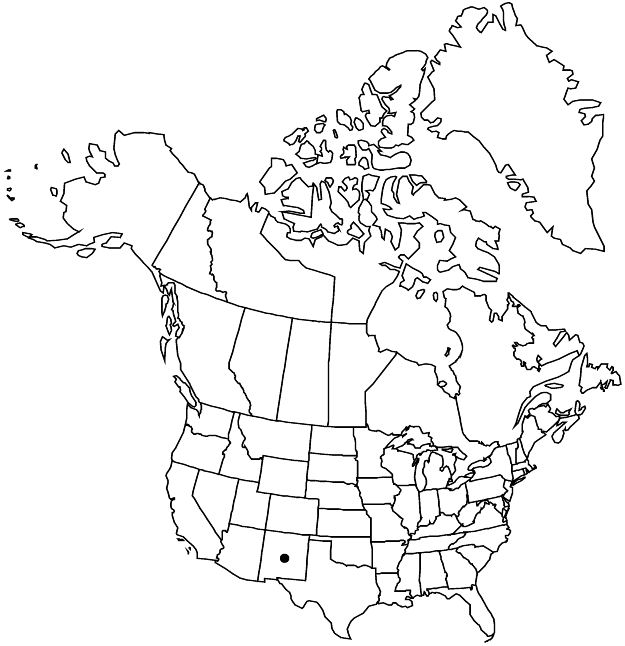Crataegus wootoniana
Torreya 7: 236. 1908.
Shrubs, 20 dm. Stems little branched, thorny; twigs: new growth not recorded, glabrous, 1-year old reddish brown, older gray; thorns on twigs 1-year old reddish brown, ± stout, 4 cm. Leaves: petiole length 40–50% blade, eglandular or sparsely glandular; blade ovate, 3–4(–5) cm, 70–100% mature size at anthesis, base truncate to broadly cuneate, lobes 3 or 4 per side, sinuses shallow, lobe apex obtuse to cuspidate, margins serrate, veins 4 or 5 per side, apex subacute, adaxial surface short-pubescent young, later glabrate. Inflorescences 5–10-flowered; branches glabrous; bracteoles absent or few, shape not recorded; anthesis in spring. Flowers 10–12 mm diam.; hypanthium glabrous; sepals 2–3 mm, margins subentire, abaxially glabrous; stamens 10, anthers pink; styles 3. Pomes shiny red, ellipsoid, 8 mm; sepal remnants erect-patent; pyrenes 2 or 3, dorsally grooved.
Phenology: Flowering May; fruiting Sep.
Habitat: Grassy areas near streams
Elevation: 2000–3000 m
Discussion
Of conservation concern.
Crataegus wootoniana is known from New Mexico. No authentic records of C. wootoniana for Arizona are known; all alleged examples seen proved to be C. macracantha.
Crataegus wootoniana is similar to the widespread 57. C. macrosperma (see discussion thereunder), from which it differs little.
Selected References
None.
